
OBIR: Occasional Biased and Ignorant Reviews reflecting this reader’s opinion.

Nothing Without Us
Published October, 2019, by Presses Renaissance Press out of Gatineau, Quebec, Canada.
Editors: Cait Gordon and Talia C. Johnson.
Cover art: Nathan Caro Fréchette.
Note: Every story is about a disabled or handicapped individual. Every story is written by a disabled or handicapped individual. This is a window on a world most people know little or nothing about, presented in the form of genre-related fiction.
Foreword: One of Us! One of Us! – by Derek Newman-Stillman
The title refers to the 1932 Tod Browning film Freaks. Which, of course, is how society treats the disabled. Derek writes of their disappointment as a young, disabled reader in learning that characters based on people like themself “weren’t fleshed out characters; they were poorly devised plot devices. Disability was used … as inspiration for abled people, as body horror, as signs of social collapse. We were constantly turned into symbols of something wrong.”
Whereas, in reference to Nothing Without Us, Derek writes: “I can’t describe how refreshing it is as a disabled person to read about fully fleshed out three-dimensional characters.” That be the whole point of this anthology, to reveal the reality of disabled life, albeit in fictional form. That is why this is a very important book.
The Bellwoods Golem – by Myriad Augustine
Premise:
Hadas can hardly do anything for themself. Even getting out of bed is a struggle. Then a Golem shows up.
Review:
This is a wonderful story. First, because it describes the essential nature of a Golem, lifting it far out of the realm of a monster of vengeance called upon as a last resort. Now I can see why a Rabbi would call upon a Golem in troubled times. Secondly, we are each our own Golem, our what is called in modern terms “a meat puppet.” Fragile, liable to collapse, and vulnerable, even at the best of times. Hadas is a Golem-like individual on the verge of dissolution, surrounded by people saying “It’s all in your mind, just do it.” Despite the horror of being a Golem, this story, through the mechanism of a Golem apart, implies there may be solution to coping with the luck of the draw. A fundamentally optimistic story despite the rawness of the struggle revealed. At least, that’s how I see it. I rather like the ending, too.
Knit One, Purl Two – by Caroline Charron
Premise:
Maggie is elderly with a painfully arthritic hip. She lives alone, or did until she rented the basement to a nice, elderly gentleman. A very nice gentleman. Unfortunately, she learns that he is a vampire. This complicates things.
Review:
Maggie’s conundrum is presented as a puzzle rather than a nightmare. She’s far too intelligent to waste time with panic or fear. After all, it’s not often a senior like her can find so caring a stranger. Rather than give up hope, she is determined to find a reasonable solution. The elderly not so weak in mind as many assume. She can barely walk, but her personality is strong. Can’t help but root for her. “Coping Strategies ‘R Us” as it were. Inspiring.
Names – by Jennifer Lee Rossman
Premise:
Rebecca is a young Navajo girl who can’t stand being touched, can’t look into people’s eyes, can’t even say people’s names. She can barely tolerate the presence of another human being. Being stalked by a skin-walker only adds to her fears.
Review:
I’m assuming Rebecca is autistic. Relating to other people can be overwhelming. Depending on them an even greater horror. Only she knows what the town is up against. The sheriff needs her to guide him. She needs him to protect her. Their newfound interdependence is more terrifying to her than the skin-walker. A glimpse into the mindset of the vulnerable. Acceptance is what is needed, not criticism or disdain. A lesson care workers know well. This story be a useful lesson indeed. It also happens to be suspenseful and scary. Good story.
Mafia Butterfly – by Raymond Luczak
Premise:
The unnamed character is an accomplished, self-made deaf woman who has achieved success on her own terms, but is largely shunned by the local deaf community because their popular “patriarch” or “Mafia don” leader doesn’t like her.
Review:
I’ve always taken for granted that all deaf people (or any other handicapped group), are automatically “in it together” with a solidarity and sense of community abled people can’t even imagine. An assumption on my part. What a shock to read a story suggesting the handicapped are like any other group of people, riven by feuds and separated into cliques where one-upmanship, competition, and power struggles are all part of the game of normal life. Quite a surprise. Never occurred to me. (Yes, in many ways I am an idiot. I don’t mind. I just take it for granted and carry on.) This story has important things to offer to anyone burdened by peer pressure, no matter who they are. Thought-provoking.
Dress Rehearsal – by Nicole Zelniker
Premise:
Lizzie hates hospitals. Her sister Tess wants her to visit Mom in the hospital. Mom has lymphoma. Tess won’t get same. Lizzie might. Lizzie hates hospitals.
Review:
I find it hard to interpret this story. My mother died after a hard, ten year decline, but I never hesitated to visit despite the overwhelming sense of frustration we both experienced. I was too busy trying to help my mother cope to concentrate on coping myself. Now that I am a senior, and have come exceedingly close to dying twice because of a potentially fatal allergy, I’ve learned, finally, to enjoy life and not worry about the future, limited though it may be.
This story, from the point of view of a person who may well develop the same fatal disease as her mother’s for genetic reasons, exposes myriad aspects of complex fatalism. Denial can play a major role, along with dare-devil confrontation. Proof that we are all multitudes within ourselves and can’t expect to adhere to a single emotional path under extreme pressure. It isn’t just the victim who deserves compassion and tolerance and understanding, but their loved ones as well. I think that be the point of this story. It’s well done, a useful lesson, but an austere and bleak one. An example of denial that masks the real pain.
The Descent – by Jamieson Wolf
Premise:
A wizard with multiple sclerosis is approaching the oracle at last. He became a wizard in order to deal with MS but it is the one thing his magic can’t touch. Well, not quite, he converted his MS into a self-aware being but failed to kill it. Now it follows him wherever he goes. Its sardonic sense of humour is an added burden.
Review:
We understand what a familiar is. This is about an extremely annoying form of familiar. Who wants to converse with the disease that is slowly killing you? Seems like an extra curse, and yet … and yet … perhaps a little bit therapeutic. Certainly multiple options are constantly under discussion. Who knows? Visiting an oracle may help one decide. Certainly every human being spends every waking moment, if only subconsciously, ruminating, second-guessing and kibitzing. A disabled person has a conscious focus for this natural train of thought. That might actually be an advantage of sorts. This story explores that possibility.
Bug Hunt – by Joanna Marsh
Premise:
Five non-neurotypical soldiers stationed on Mars are assigned the task of getting into their mechs to track down and kill Anna Hyde, who has gone rogue. Trouble is her mech, “The Godkiller,” has mutated into something invincible.
Review:
Reads a bit like a parody of Heinlein’s Starship Troopers. Here, individuals, under constant surveillance because they are different, serve the greater good of the Empire because to hint otherwise would mean certain death. Being sentenced to die is pretty much what even “normal” individuals experience eventually. Being ultra-patriotic is no defence in a regime dedicated to egalitarian terror in order to keep everyone absolutely obedient till their sacrifice is necessary. This kind of regime surprisingly popular in world history.
So what has this to do with disabled people? Everything. I suspect the “Empire” stands in for the attitude of society toward the disabled. There’s “Propaganda,” i.e. good wishes and statements of support with temporary campaigns to raise public awareness and money for research, and then there’s “the terror regime,” a general cold shoulder offered by people who would rather cross the street to avoid the disabled than face the uncertainty of compassion and communication, who find it easier to ignore than to comfort, who want to carry on with their own lives rather than deal with the problems of others. And what about people who resent the disabled? “Hey, I’ve got problems of my own. How dare you imply, by your very existence, that your problem is worse than mine?”
To be fair, most people, if unavoidably confronted with the reality of the disabled, turn out to be decent and caring. Yet, as I’m sure the disabled are fully aware, a good many people find it far easier to avoid thinking about the disabled, let alone talking to them. Life is so much simpler that way, less difficult. Call it a bad form of social distancing.
I believe the purpose of this story is to reveal the layers of pain that social phenomenon leaves on its victims, so that the abled can empathise more easily. At the same time, the resolution of the story is both grim and amusing. At least, I think it would strike the disabled that way. And for the abled, a bit of a wake-up call to jumpstart their empathy and thoughts.
Oliver Gutierrez and the Walking Stick of Destiny – by Elliot Dunstan
Premise:
Oliver is deaf, queer, and bi-polar. These can be problems. Having sentient hearing aids that constantly bicker is another problem. Now he’s been diagnosed, at the age of twenty-nine, with rheumatoid arthritis. So he got a cane. Problem is it is as talkative as the hearing aids.
Review:
Another battle with inner voices, some full of doubt, others rationalizing cause for hope. I suppose, in a sense, the story implies it doesn’t matter if you are delusional, because life is delusional or, to be charitable, purely a matter of interpretation. I am open to this point of view. I’d be lost if I wasn’t my own cheerleader. My ego is not as vast as my ignorance, but it is big enough to keep me chugging along. I think this story is saying “Sure, you’re going to have delusions as a coping mechanism. Just make sure you pick the right ones.” Makes sense to me. Like most of the stories in this anthology, rather painful, but optimistic. Encouraging.
I have only one problem with this story. “Xe” is used in place of “He,” “xyr” instead of “his,” and “xem” instead of “them.” I’m old, and settled in my ways as solidly as Hoffa is encased in concrete. I find this “new” grammar distracting, knocking me out of the story, and had to read it several times before my mind got used to it and my eye-tracks flowed past “Xe” as easily as “He.”
I’m not entirely too old to learn new tricks, and I understand intellectually some people’s heart-felt need to combat sexism in grammar usage. I have already published at least one story in my Polar Borealis Magazine written along those lines, for it was a good story, as this one is, so I’m not against new trends in the use of the English language which is, after all, notorious for its continual evolution and ready assimilation of new words and new concepts.
I, on the other hand, am personally nowhere near as flexible as the language. To be honest, I suspect most of my future reading for personal pleasure, once I’m too old and senile to review books, will consist entirely of literature written in the three thousand years before 2,000 A.D. Probably before 1970, actually. I hope cutting-edge authors and readers will forgive me for being old. My retirement depends on people tolerating me for being a survival from another age. “Quaint” and “obsolete” can serve a purpose too, I like to think.
Crutch, Cage, Sword, Kerfuffle – by Dorothy Ellen Palmer
Premise:
Nellie is both disabled (requires a cane to walk) and nine months pregnant. Nevertheless she steals a talking sword (claims to be Excalibur) from a museum exhibit (the Royal Ontario Museum I think, though not named), intending to use it in a most visceral manner while doing improv at a G20 Summit protest which, as it turns out, is quite violent, mostly because of the Toronto police (historically accurate).
Review:
I’m a bit stumped by this one. Not a straightforward lineal story. A bit surreal. Would the police be as brutal as portrayed? Yes, they were. How can a nine months pregnant woman be so active? This is explained. Would a disabled woman risk her life in a public protest on behalf of the public in general? Perfectly reasonable. I know a woman who does that routinely. Isn’t Nellie protesting what society does to her in particular? Absolutely. Aren’t the two protest motivations intertwined, inseparable, and rather confusing? Yep, just like in real life. I think that’s the point. The resolution of the story, though cathartic for Nellie, doesn’t really resolve Nellie’s problem. That, too, is the point. Life is an ongoing struggle. This be a horror story in more ways than one. Perhaps there are no solutions, only coping mechanisms, in this case rather extreme. Much to ponder. This story is also a good example of how to insert the problems of a fictional character into an account of an actual event. Beginning writers should take note. This is how it is done.
Iron Bone – by J. Ivanel Johnson
Premise:
Fiona was born with spondylolisthesis, a condition where one vertebrae has slipped down over the next such that she has never been able to straighten up. Nevertheless she managed a career as an equestrian event rider, even occasionally interacting with members of the British Royal family, who are quite active in horsey matters. Her profession is not kind to her spine.
Review:
This would seem to be an exercise in over-compensation, or perhaps denial utilized as a tool to achieve accomplishment at the level of an athlete.
As a Canadian, who once swore personal allegiance to her Majesty in order to land a job at Canada Customs (I figure she owes me a dinner at Buckingham Palace), I appreciate the wry humour of the digs at the Royals, particularly the description of Prince Philip, notorious for his knack of insulting whomever he is talking to in the most 19th century manner possible. Taking pot-shots at the Royals is part of the fun of being a loyal subject. In this story the writer’s interactions with the Royals are both credible and amusing, and rather original in tone.
Likewise Fiona’s acceptance of the collateral damage brought about by doing what she wants to do. This is rather refreshing. It is as if she is saying “Yes, I’m handicapped. Yes, what I do makes things worse. But I don’t care. It makes me happy.” Could it be that this is the best approach to dealing with a significant disability, the best attitude to charge at life despite the lousy hand produced by the luck of the draw? A bit reckless, perhaps, but you only have one life to live, so why not? Another optimistic story, potentially inspirational.
Sometimes You … – by Tonya Liburd
Premise:
Robin, still reeling from the death of his mother, now living in a youth shelter, is beat up by three thugs because he looks exactly like the sort of helpless, weak individual who deserves to be beat up. He wants revenge, but knows he is too unstable to accomplish anything of the sort. Reality is very, very painful. Hopeless in fact.
Review:
One thing I’ve noticed about people as liberal as myself is that there is a tendency to believe there’s a profound reason for any act of violence. Life has taught me that violence can be quite casual, a mere habit, a moment’s respite from boredom. Something done when there’s nothing better to do. Fortunately for me, something I’ve been confronted only a couple of times in my life, like when I was mugged. I derive my thinking mostly from what others have experienced. Victims think it is all about them. Sometimes it is. Sometimes the identity, the individual being of the victim, is irrelevant. The guy who beat me to the ground and kicked the hell out of me wasn’t after me, he was after my wallet. Simple as that.
Which is what is so horrific about the attack at the beginning of this story. The victim knows it isn’t personal, he just happened to be in the wrong place at the wrong time, but sure as shooting it is inevitable and there’s nothing he can do to prevent it. It is as if the universe itself has it in for him. This is part of the burden of being a victim. This is why the trauma can be so overwhelming. The “Why me?” aspect is so powerful it amounts to a form of guilt. Of course victims blame their attackers, but they blame themselves even more. This is why the mentally handicapped hit by violence enter a downward spiral. Everything combines to push you down, to keep you down.
I haven’t said much about style in this review because I’ve been focused on meaning. Tonya’s style in this story is precise and clear, both simple and straightforward. She doesn’t waste words. The story is more important than the technique. She goes straight to the heart of the matter. You, as the reader, share intimately the thoughts and doubts and fears of Robin. Tonya forces you to climb aboard his downward spiral, making it impossible not to empathise. You learn what it is like to hit rock bottom. You learn a “loser” isn’t a “loser” somehow to blame for what he is, but rather a living tragedy worthy of your compassion. An epiphany of sorts. Turns out “losers” are as human as you or I.
This story ends on an optimistic note, in that Robin finds a ladder he can maybe use to climb out of the pit he is in. This is the Holy Grail of mental disability, a method of combating negative reinforcement in a meaningful, practical manner. Easier said than done, as I know full well, having suffered off and on from extreme depression for about forty years, but no longer. All the same, there is always hope. “Never give up” is more than a slogan. It is actually damned useful advice, because you never know.
Yes, this is a story simply told, but it is complex and intricate in its underlying psychology to the point of revealing much truth about human frailty and strength. Powerful story.
CONCLUSION:
Run out of space. All the remaining stories are equally impactful. I think this is an important and significant book. Certainly memorable. You won’t forget what you’ve read when you put it down. This anthology deserves an Aurora Award, in my opinion. It’s that good.
Check it out at: < Nothing Without Us >

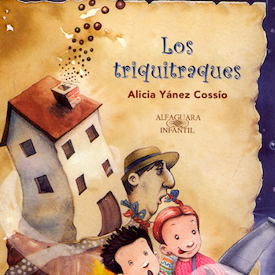
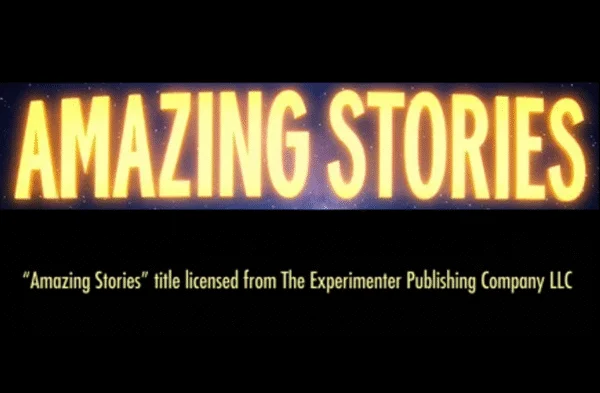

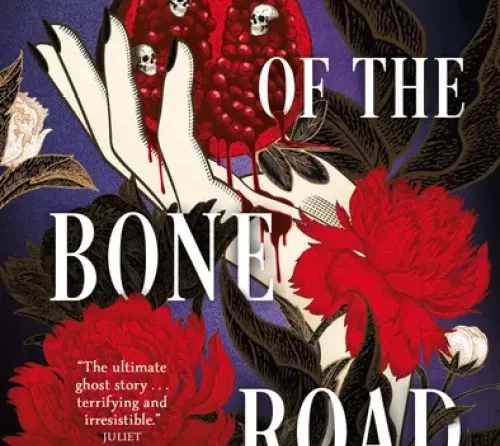
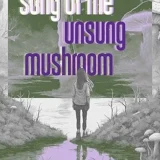



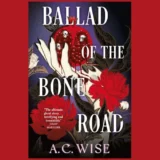
An excellent review, as usual. I’ll definitely have to look this one up.